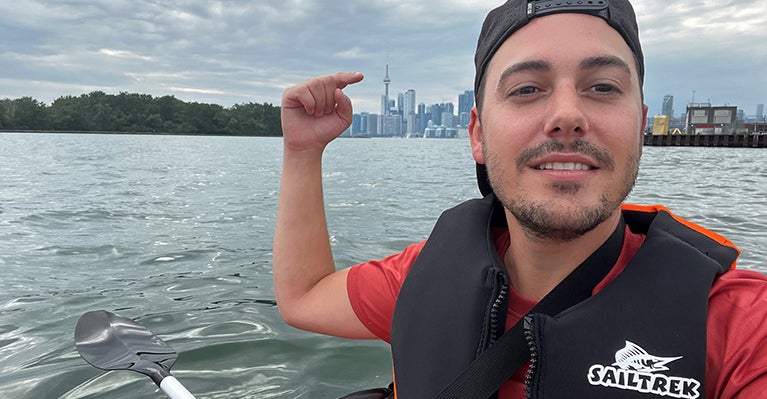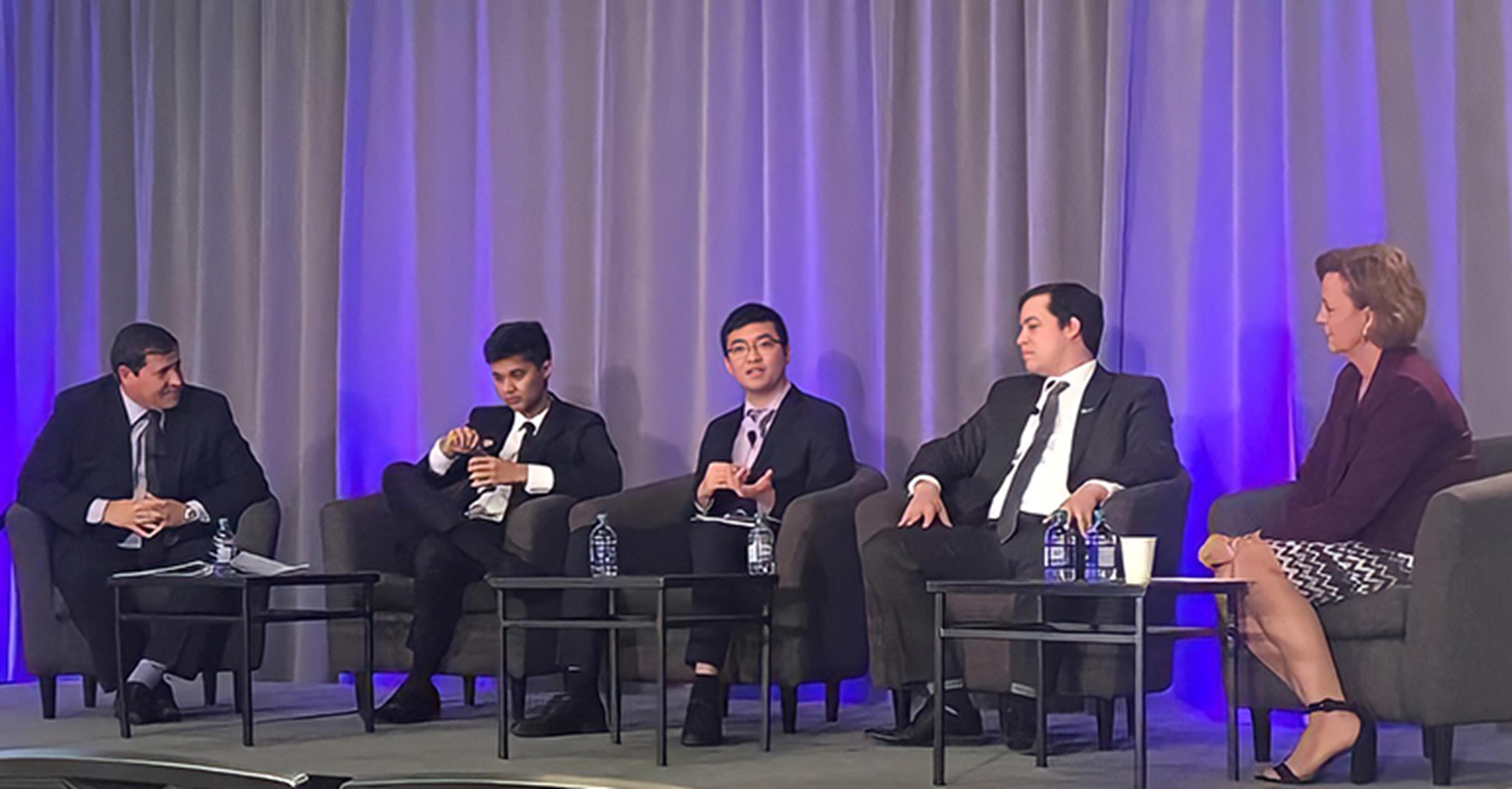My Path to CPA: Exploring Diverse Industries Through CPA Practical Experience
Jake Kokavecz, CPA is a Senior Financial Analyst, FP&A at the Alzheimer Society of Ontario. He graduated with a Bachelor of Commerce, Accounting and Business Management at Toronto Metropolitan University. Jake lives in Toronto.
As part of the practical experience component of the CPA certification program, Jake gained hands-on work experiences through the self-directed Experience Verification Route (EVR). We asked him about mentorship, reporting and how EVR worked for him.

Why did you become a CPA?
After graduating from high school in a small town, I was accepted into a business-IT program at Toronto Metropolitan University. At the time, I thought the IT sector in the “big city” was the path to take. In my first semester at university, I took a financial accounting course as part of my requirement, and in the very first lecture I remember the professor asked a show of hands who has taken an accounting course. While thinking to myself, that’s a strange question, we only just graduated from high school, I looked around the lecture hall and saw the majority of hands rise. I wasn’t aware that accounting classes were offered in high school because my school just offered the basic math’s and sciences. At that moment, I felt like I was in over my head.
But by the end of the semester, I was far more passionate about that financial accounting course than any of the IT courses I had taken. Fast forward three years, and several accounting courses later, I decided to apply to switch programs, forego IT and study accounting. I value education to a great deal and after discovering my passion for accounting in my undergrad, I knew that this was the profession I wanted to pursue.
What's your current role and what was your path to get there?
I currently focus on budgeting and forecasting, as well as financial reporting and analysis in my current role as a Senior Financial Analyst, Financial Planning & Analysis (FP&A). I work in the not-for-profit industry for a large charity and prior to this role, I held various positions in the banking and insurance industry. With my role, I am always interacting with people and working with individuals at all levels across the organization. This has allowed me to gain a strong understanding of the organization and what we do.
Why was EVR the best route for your practical experience?
Accountants are needed in all job sectors and industries. The EVR route allowed me to explore different industries and find one that I am enthusiastic about. When I was considering new opportunities, I focused less on ticking off all the requirements set out in the EVR route, and more on how avid I was about the opportunity itself. If you are passionate about accounting and you find an opportunity that you are truly passionate about as well, the flexibility of the EVR program allows you to develop the knowledge and skills required to become a CPA.
What did you find most rewarding or valuable about your practical experience?
While completing my practical experience requirements, I found myself expanding on my job accountabilities and taking on new tasks to meet the EVR criteria. Completing my practical experience allowed me to reflect on what I had accomplished and really self-validate my value in the organization.
What did you find most challenging about your practical experience?
I found it most challenging to prioritize my practical experience reporting while managing work and day-to-day life. In the early stages of my career, my focus was to develop in my role, move up and gain more experience, and there were several times when I prioritized working late for the sake of a possible promotion over completing my practical experience reporting. The longer I procrastinated, the harder it was for me to reflect on my experiences when completing each PERT response.
How did your CPA mentor assist you through your practical experience journey? What advice do you have for working with a mentor?
My CPA mentor and I touched base frequently throughout my practical experience journey. I valued their experience and knowledge in the profession. My CPA mentor made themselves available and I am very grateful for their caring and interest in my CPA journey. My advice is to look for a CPA mentor that you value and connect with and that has an interest in your future.
What resources were most useful to assist you in reporting in PERT?
The PERT and the CPA Ontario website has a lot of resources and information available that I found useful when reporting my experience. The PERT portal is very informative on what is required in each technical competency and enabling competency, and there are many videos and reference materials on the CPA Ontario website.
What tips do you have for other students who are reporting in PERT?
Reporting in PERT can seem cumbersome and might seem like a burden when you are in a demanding role or managing your personal life. One tip I will offer is to always keep your practical experience in the back of your mind while you are performing any tasks or taking on any projects and to document any time something comes to mind (whether in the PERT portal directly or in a notebook on your desk). Documenting your experience little by little over time will make it easier for you when it comes to submitting your next practical experience report.
What do you wish you had known about practical experience at the start of your reporting?
I wish I knew at the start how important it is to prioritize my practical experience alongside building my career and managing my life. The reporting requirements can seem cumbersome and might seem like a burden when you are busy with work or your personal life. I found myself saying “once I finish up this busy month-end” or “right after this busy period”, but one thing to recognize is that life is always “busy”.
Want to read more about PERT and student journeys? Check out our Q&A with Madison Haldenby, CPA, VP Finance at Parallel Studios.


